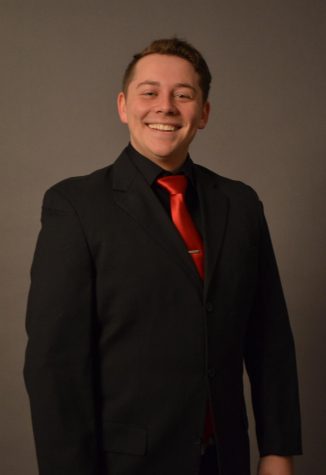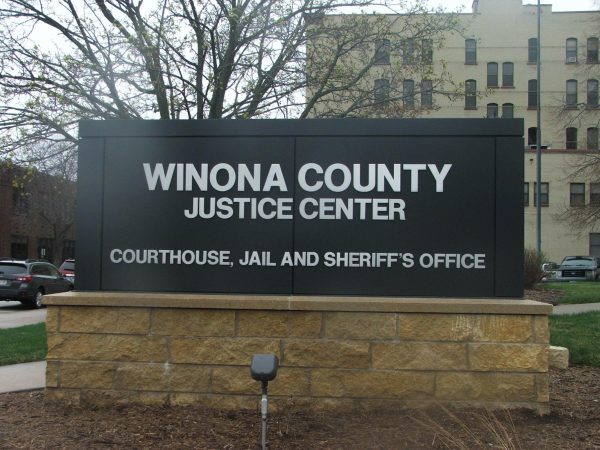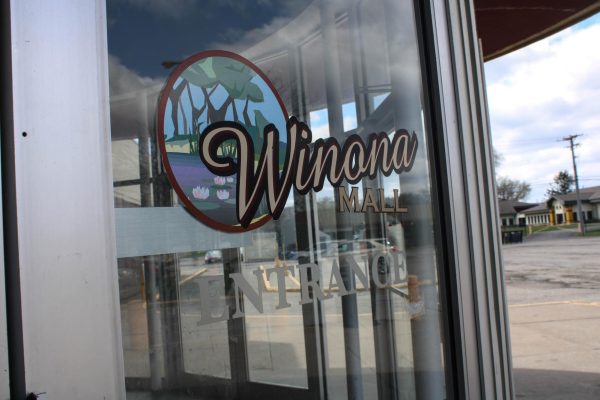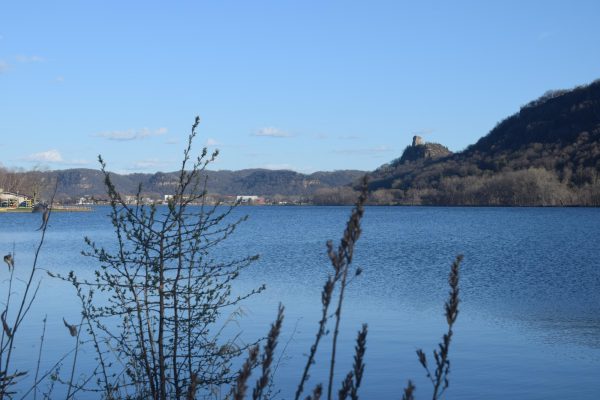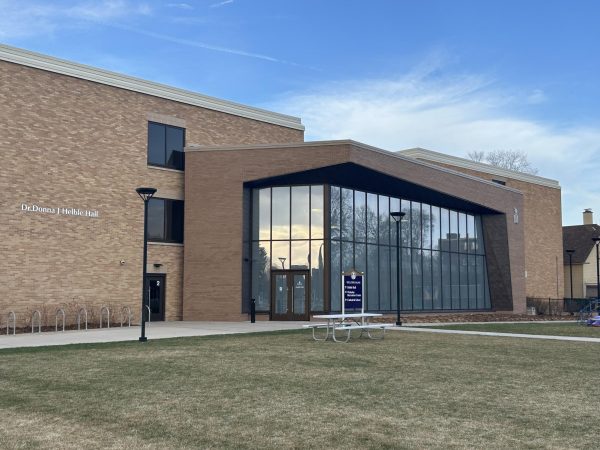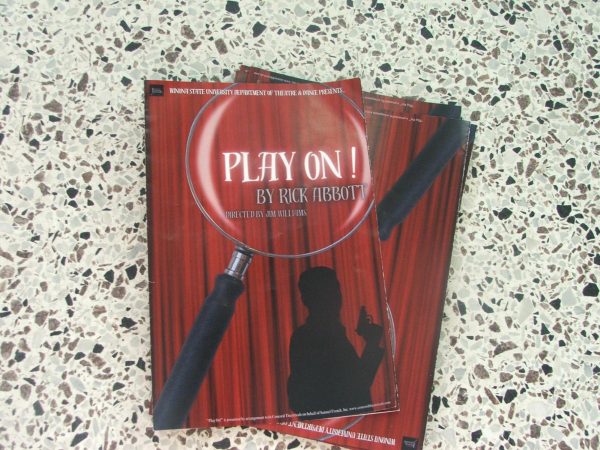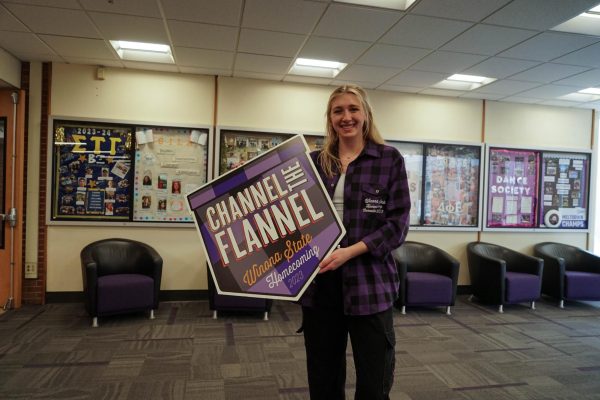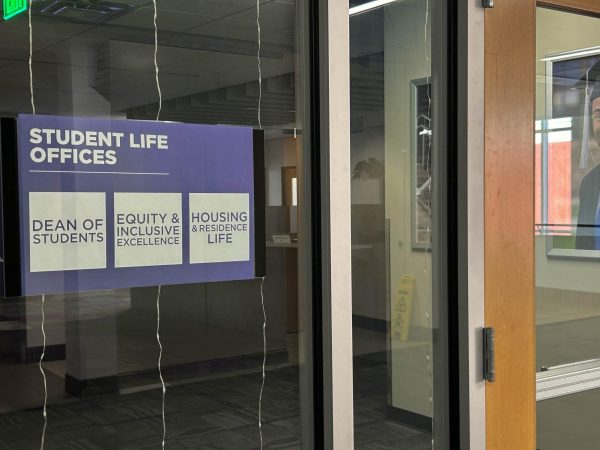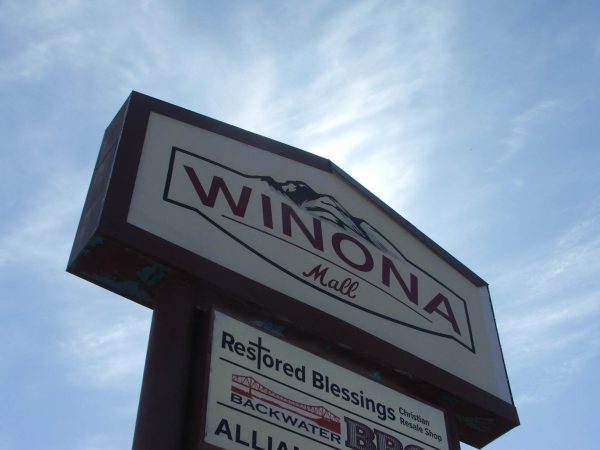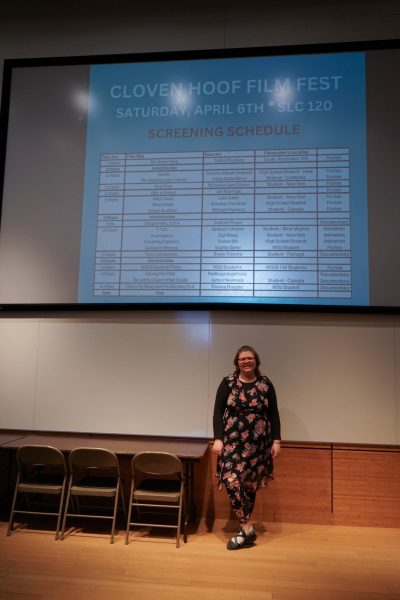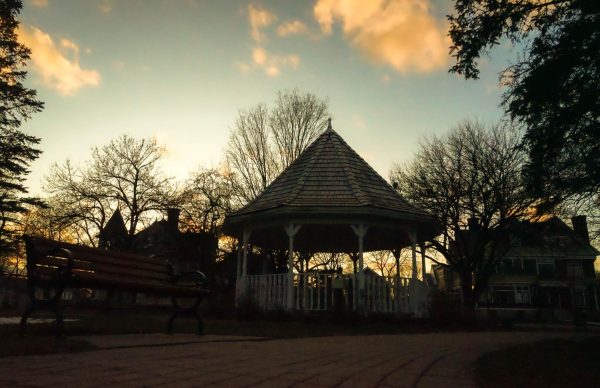Class composts their way into Winona State legacy
March 30, 2016
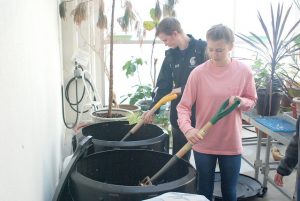
Zach Bailey / Winonan
A world faced with garbage and pollution. A classroom faced with a project to leave a legacy at Winona State University. So why not tackle both?
Madeline Newman, a senior ecology student with a sustainability minor, was faced with this task in her stewardship of self and the environment: building a principled way of life (RTTR 244) class, one of the classes geared towards her minor.
Ideas were thrown about the room when Newman suggested the idea of setting up compost bins around the university.
“[Newman] was really into composting. She did it at her house, so she already knew quite a bit about it, and Winona State has a compost bin in the greenhouse, so we thought it might be a good idea to spread it through campus,” said Briana Skufca, a biology student who is also a part of the class.
With an idea ready to go, the seven-student class began to get their plan in motion.
“We all just really took over the jobs that we were good at,” Skufca said.
Newman informed the class about all the do’s and don’ts of composting, gathered the barrels with the help of some donations and lead the class’ efforts. Skufca, who also has knowledge of composting, helped to inform the class on the concept as well, along with sending out emails, asking for permission from Winona State to do the project and if there are any rules they should follow.
One student in the class, who is an advertising student, was in charge of making signs and posting them around campus saying what composting was and what was allowed in the bins. Then another student was in charge of promoting the project.
“The whole class had a part in the project, and everyone had their own specialty,” said Skufca.
After sending continuous emails attempting to contact Winona State faculty to get the project running, the class was finally able to set up three composting bins in the science buildings on the university’s campus.
“We spoke to many people, with the final group being the maintenance people, who said that as long as it’s not on the carpet and the can is emptied every day, they had no problem with it,” Newman said.
The bins were placed on the first floor of Pasteur Hall next to the elevator, outside the biology department on the second floor of Pasteur Hall and on the third floor terrace of the Science Laboratory Center. Though these may seem like random placements, every bit of their plan was thought through.
“The first bin was chosen due to its high traffic area, and the second was due to the fact that it’s right next to a trash can, to make people be like, ‘wait, I don’t think this food should go in the trash,’” Newman said.
With the project being completely set up and in use since Tuesday, March 22, students in the class have been hard at work not only using the bins themselves, but at the end of every day they weigh all of the compost to see how much the bins are being used.
The measurements also help the class determine if this is a feasible project in the future.
The compost is then taken to either the greenhouse on campus, for use in the Winona community, or for such things as roadside planting and organic planting in Pickwick, Minn. The class is starting out with this project only being a five-week trial but if the project is successful, there is a possibility of it becoming something that can be continued, and could be put to use in all Winona State buildings.
The project has only had a few main problems and hardships. First, was being able to get the project going.
“The main reason it was hard to start up was because people had tried this in the past, and due to poor planning and execution, it didn’t work out for them,” Newman said.
After startup, the main problem became something bigger than expected: what happens when this class graduates this semester? Both Newman and Skufca agreed that one of the biggest challenges has been trying to find out who will pick this project up next school year.
“We hope to find people who would be willing to help out and pick up the project next semester, but our big hopes are to one day have composting be normal. You take out the trash, you take out the recycling, you take out the compost, no second thought towards it,” Newman said.
There is a Facebook page created by the class called Winona State Compost, and it is an open group that anyone can join. Though the composting began as a class project, the students involved saw it become something much more meaningful.
“From the beginning, it was our own thing to do, I’m definitely excited about this project,” Skufca began, “Do your research, find out more about composting, getting people involved and understanding is most important.”























































